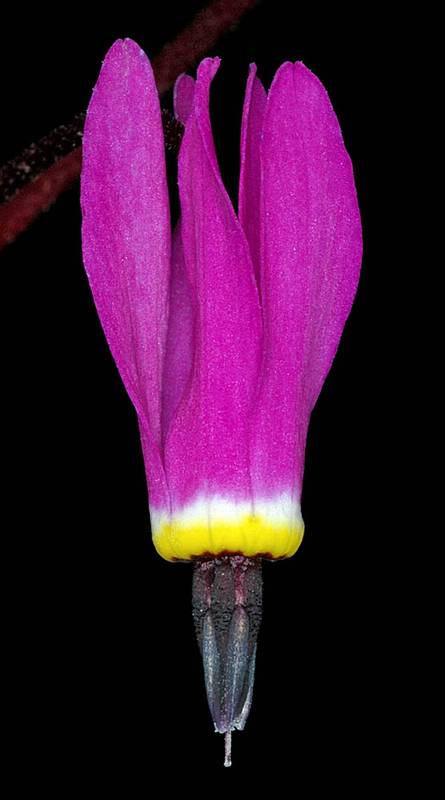Hosted by the University of Washington Herbarium, Burke Museum
Origin: Native
Herbarium search: CPNWH
Notes: FNA8: "Dodecatheon hendersonii occurs from southern Vancouver Island in the coastal ranges to west-central California (as far as San Benito County) and is disjunct into the San Bernardino Mountains in southern California. To the east, the species is found on the Siskiyou Mountains and in the Sierra Nevada of California to Tulare County. A Macoun (s.n., DAO) specimen supposedly gathered at Yale, British Columbia, may be misattributed (K. I. Beamish 1955); all other known localities are from Vancouver Island.
Inasmuch as bulblets and mature capsules are rarely collected, it is difficult to clearly distinguish between var. hendersonii and var. hansenii. The former may be broadly characterized as plants bearing bulblets at anthesis with sparsely glandular scapes, pedicels, and, sometimes, calyces. The calyx of var. hendersonii is usually greenish with purple or reddish speckles. The most distinctive characteristics of this phase are a filament tube that is 1-2.5 mm wide and acute anther apices. It is found mainly along the coast from British Columbia to southern Oregon and in scattered locations in coastal California, with disjunct populations in the foothills of the central Sierra Nevada, and in the mountains of southern California. Variety hansenii is glabrous, lacks bulblets, and the calyx typically is green; it usually is found inland in the Siskiyou Mountains and the Sierra Nevada and scattered populations occur in the coastal ranges of northern California. The filaments in var. hansenii are broader, being tubes 1.5-4 mm wide, and anther apices are obtuse. Capsules of var. hendersonii are usually operculate; those of var. hansenii appear to be consistently valvate. The 2n = 66 plants appear to be primarily individuals that produce little or no pollen."
Last updated 8/21/2023 by David Giblin.

